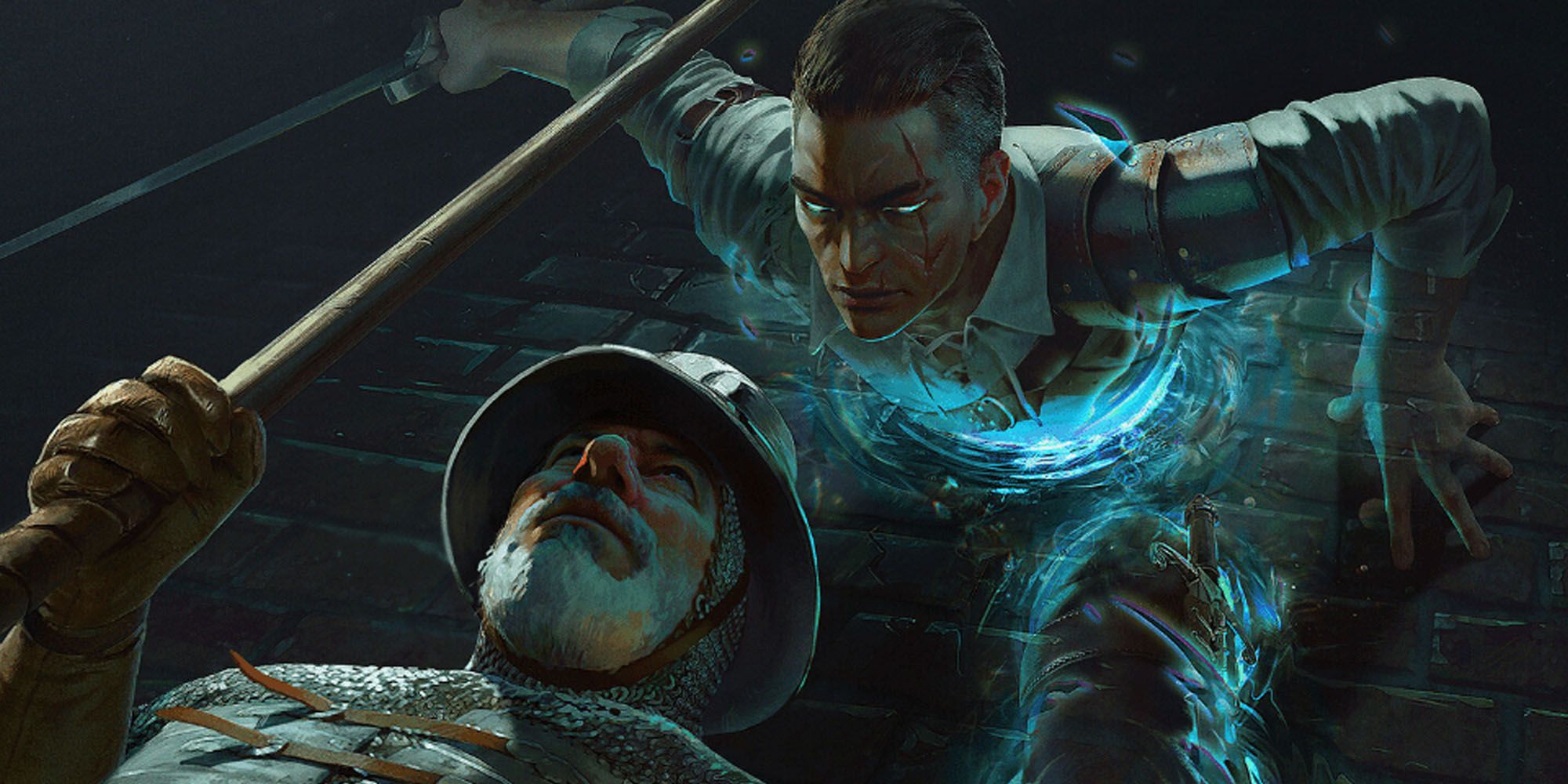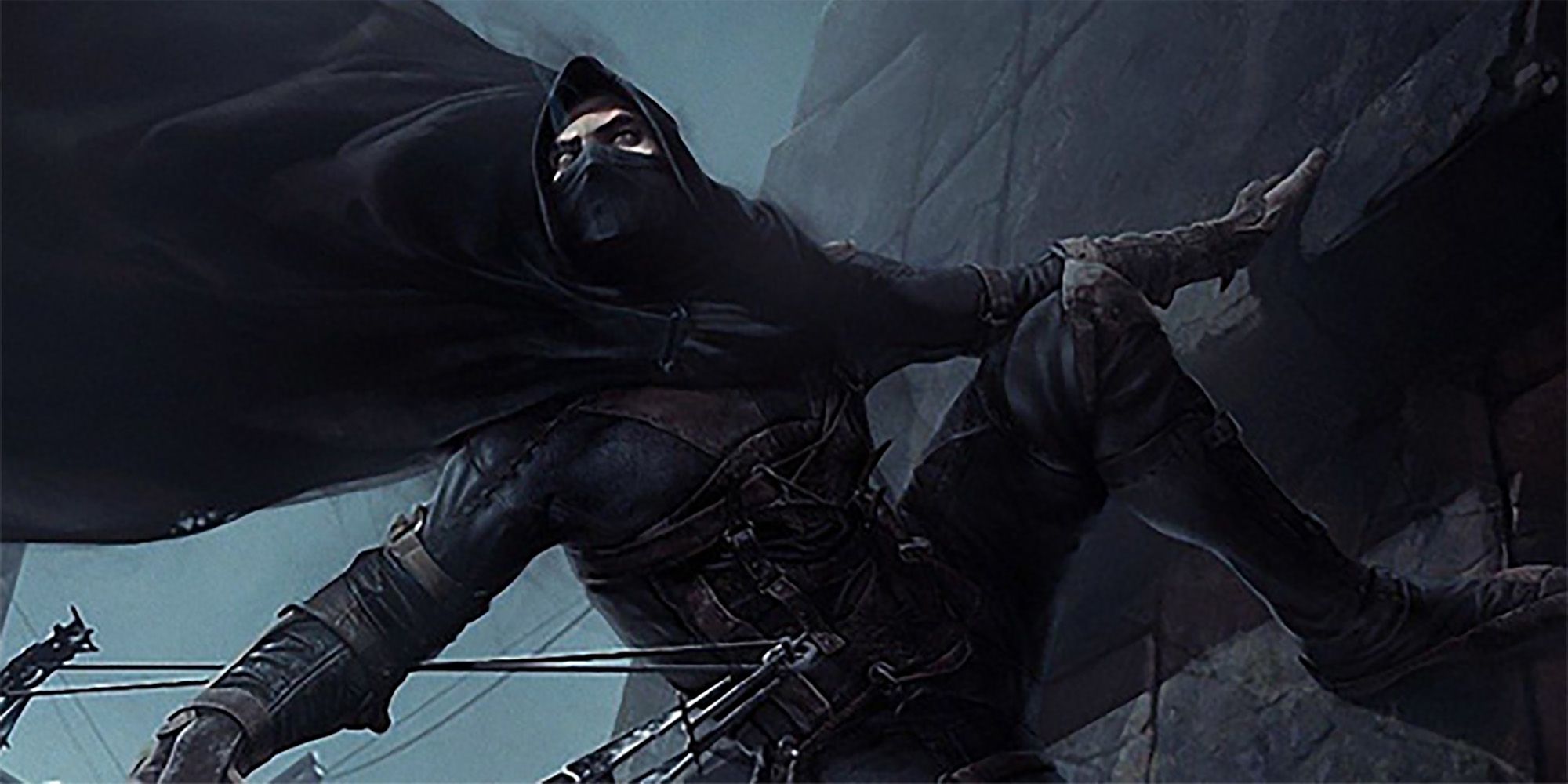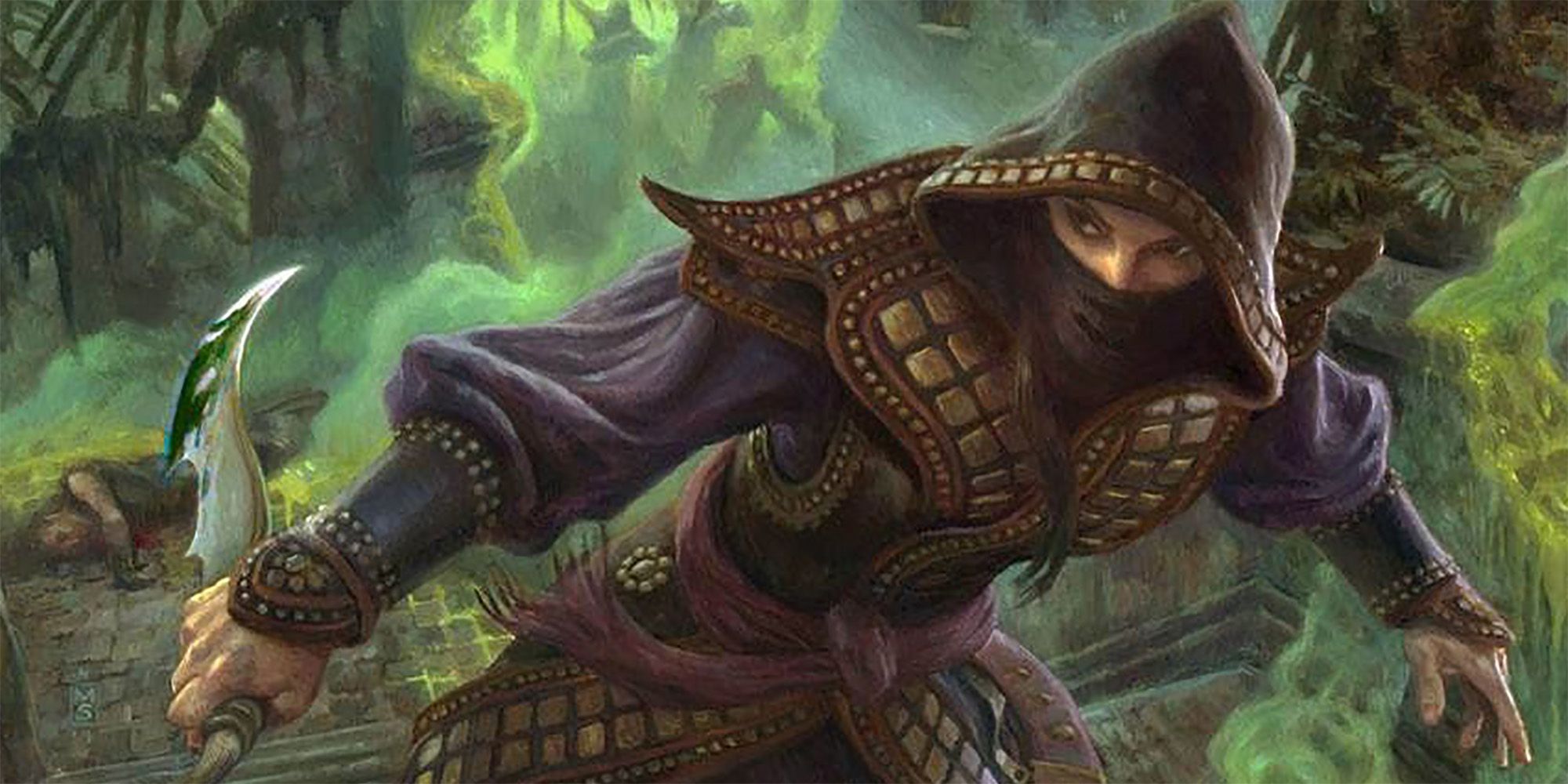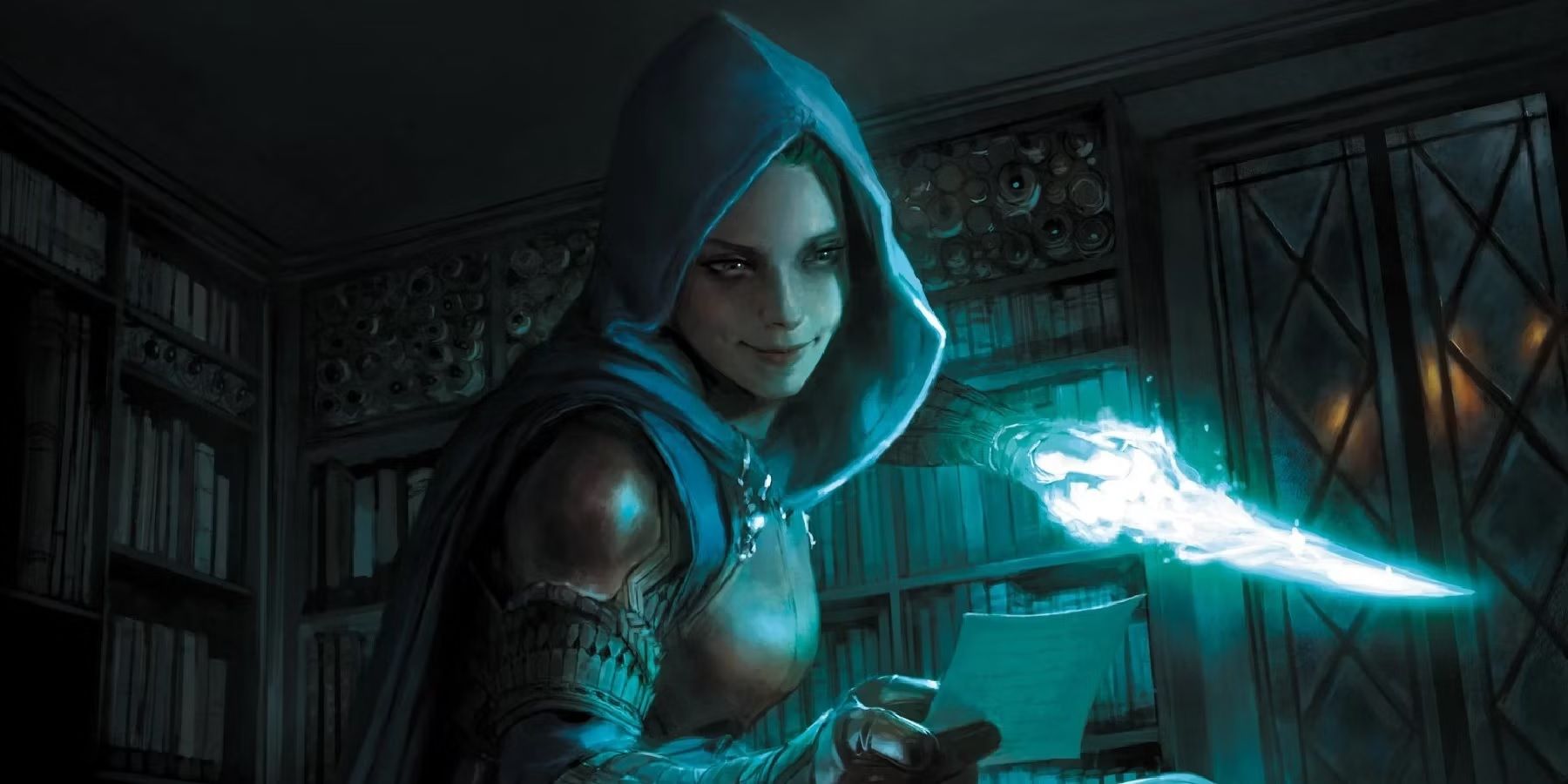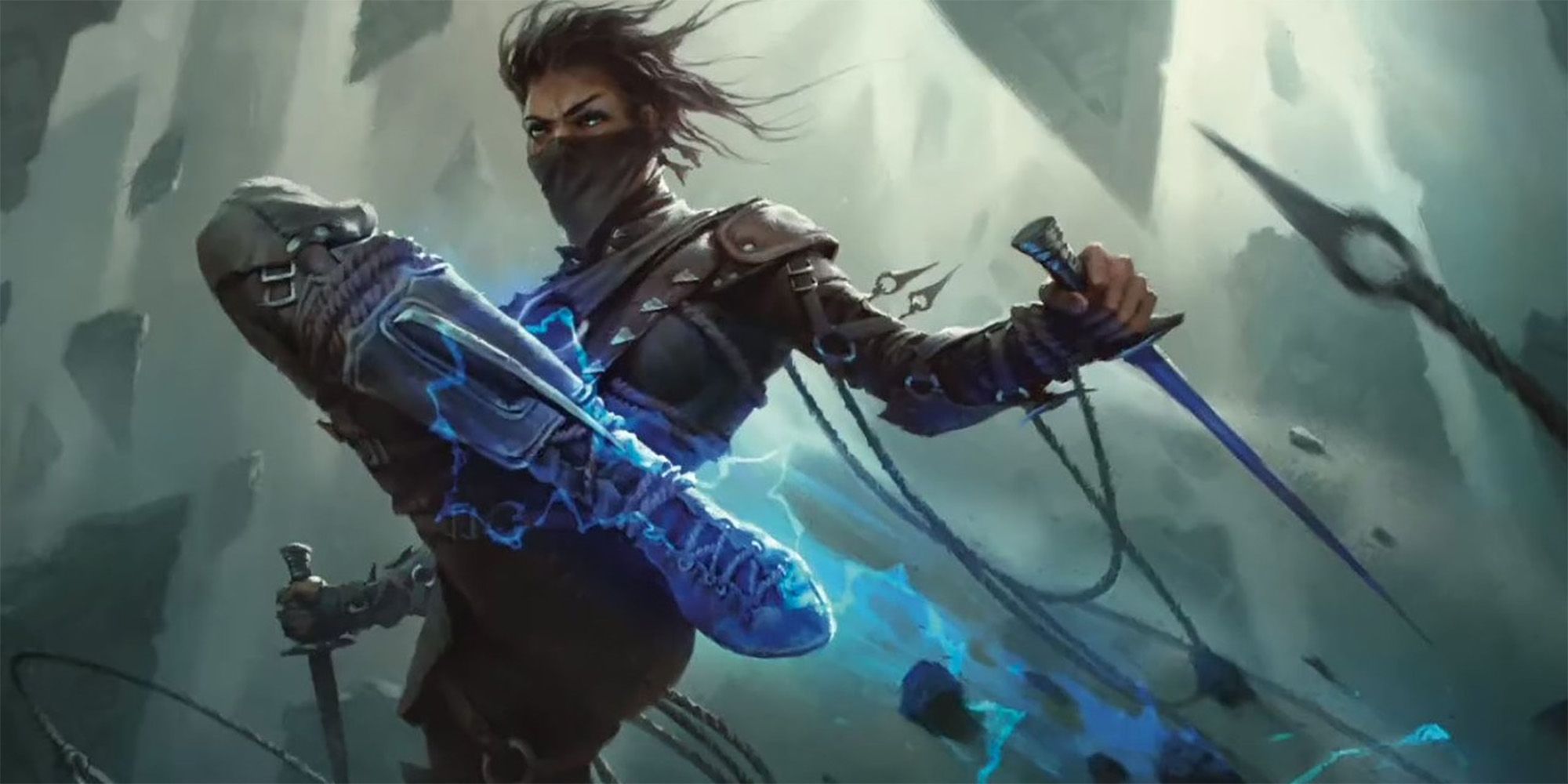When it comes to stealth, precision and pockets potentially bulging with stolen goods, Dungeons & Dragons Fifth Edition has made the sticky-fingered rogue a nearly indispensable member of adventuring parties. As one of the game's three original classes, the role of the rogue is highly essential because there are a number of things they can do that other classes just can't. As virtual masters of stealth, infiltrators, trap disarmers and con artists, there is plenty more to the rogue player character than stealing and sneaking. That's where crafting a powerful build comes into play.
Rogues can be high damage dealers, with abilities like Sneak Attack buffering their damage rolls. Depending on their subclass, they may even be able to rack up more damage than classes like the fighter or barbarian, but it takes careful planning. Crafting an outstanding rogue build means taking every advantage the system has to offer into consideration. From the best background and race to the highest performing subclass and most valuable feats.
Rogue Build Summary
|
Ability Scores (in order of importance) |
Dexterity, Constitution, Wisdom/Charisma/Intelligence, Strength |
|
Race |
Variant human/custom lineage, satyr, fairy |
|
Background |
Criminal, Charlatan, Pirate |
|
Subclass |
Arcane Trickster, Soulknife, Swashbuckler |
|
Feats |
Magic Initiate, Fighting Initiate, Piercer |
|
Multiclass |
Fighter, Warlock |
Perks Of The Rogue Class
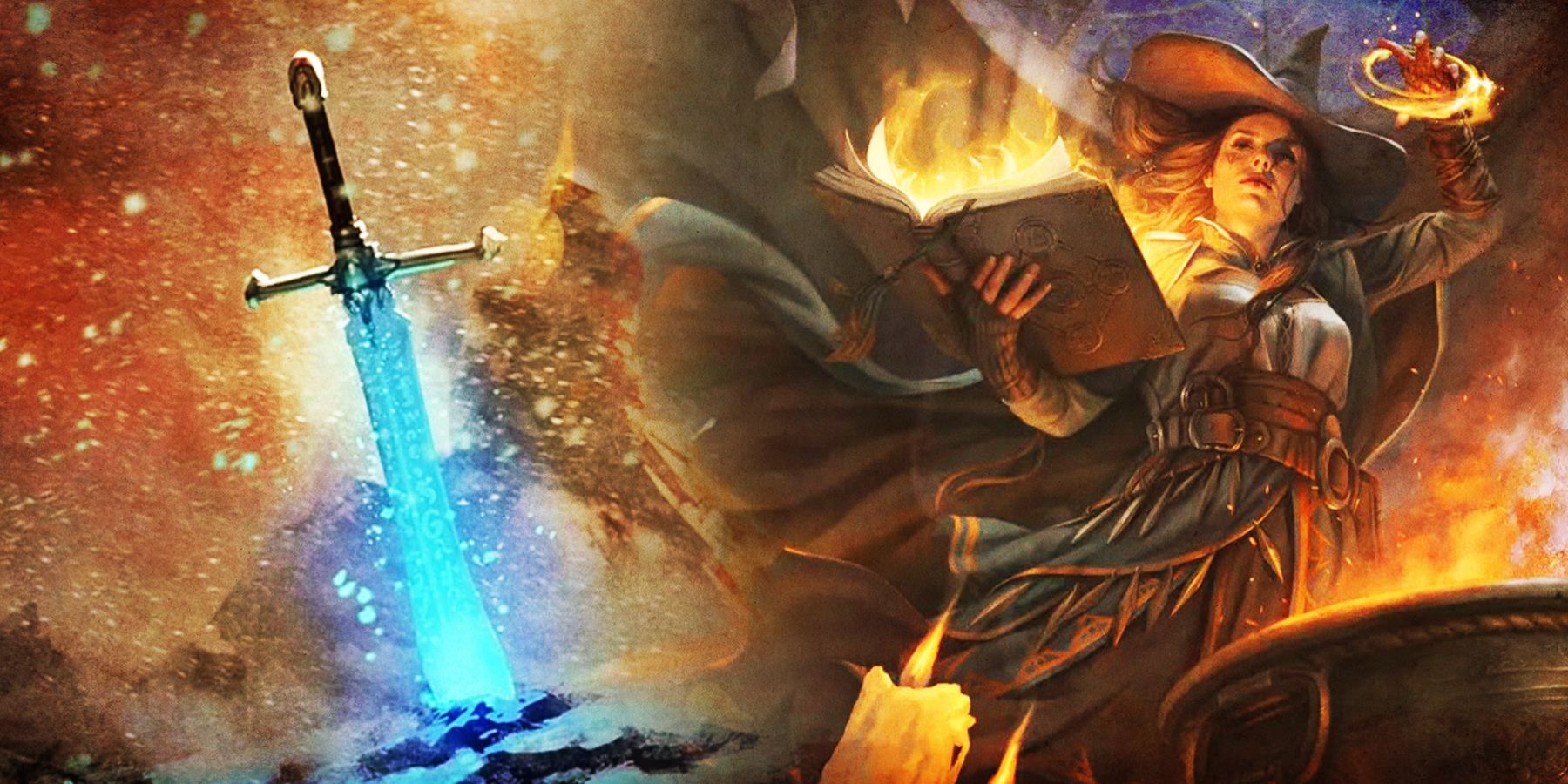
25 Common Magical Items Your D&D Party Will Thank You For
It isn't only the rare items that make a D&D session memorable. There's plenty of fun to be had with common magical items sure to charm any party.Rogues are precise specialists through and through in D&D 5e. Outside combat, they provide immense utility with proficiency and Expertise in more skills than almost any other class. In combat, they drop enemies with a high-damage Sneak Attack. Rogues are the best D&D 5e class for players who want to fill almost any role without relying on their spellcasting.
Sneak Attack is the D&D 5e's rogue's iconic ability. It adds additional d6 damage dice to ranged or finesse attacks that either have advantage or hit creatures within five feet of an enemy. Rogues should be able to land Sneak Attack every turn in D&D 5e, keeping their damage competitive with a bit of combat skill.
Expertise is their other defining first-level ability. Rogues are among the best skill-using characters in D&D 5e. Expertise from a low level ensures there are skills they'll almost never fail. A doubled proficiency bonus and high ability scores can turn even a one on the d20 into a near-guaranteed success at most ability checks. Thieves' Cant is less vital but provides a flavorful and entertaining way to conduct secret conversations with allies.
Cunning Action contributes to the D&D 5e rogue's infamous slipperiness in combat. They can use a bonus action to hide, dash, or disengage. This helps rogues engage in hit-and-run tactics, makes them almost impossible for most enemies to catch, or lets them hide for frequent advantage on their attacks.
Steady Aim is an optional rogue ability from Tasha's Cauldron of Everything that lets the rogue stand still and use their bonus action to gain advantage on a weapon attack. This is a fallback option to guarantee Sneak Attack in unfortunate situations, ensuring the rogue is almost never out of luck in difficult combats.
Uncanny Dodge and Evasion are surprisingly effective defensive features for the fragile and precise rogue class. Uncanny Dodge lets them use their reaction to halve an attack's damage. It costs no resources but can only happen once per turn, encouraging rogues to wait for vicious attacks. Evasion causes them to take half damage on a failed Dexterity saving throw and no damage on a successful throw, negating the risk of many dangerous traps and spells.
Reliable Talent is the rogue's other vital feature for ability checks. If a rogue has proficiency or Expertise in a skill, they can never roll below a 10 on the d20 with that skill. In effect, the floor for rogue checks becomes immensely high. They are almost always guaranteed to succeed against common obstacles, preventing bad luck from hampering their effectiveness.
A D&D 5e rogue's high-level abilities help sell it as an expert and master of planning that always has the upper hand. Blindsense tips a rogue off as to invisible or hidden enemies' locations while Elusive prevents any attack roll from having advantage. Slippery Mind gives proficiency in vital Wisdom saving throws. Stroke of Luck allows a rogue in D&D 5e to turn one missed attack roll into a hit or any failed ability check into a natural 20 once every short rest.
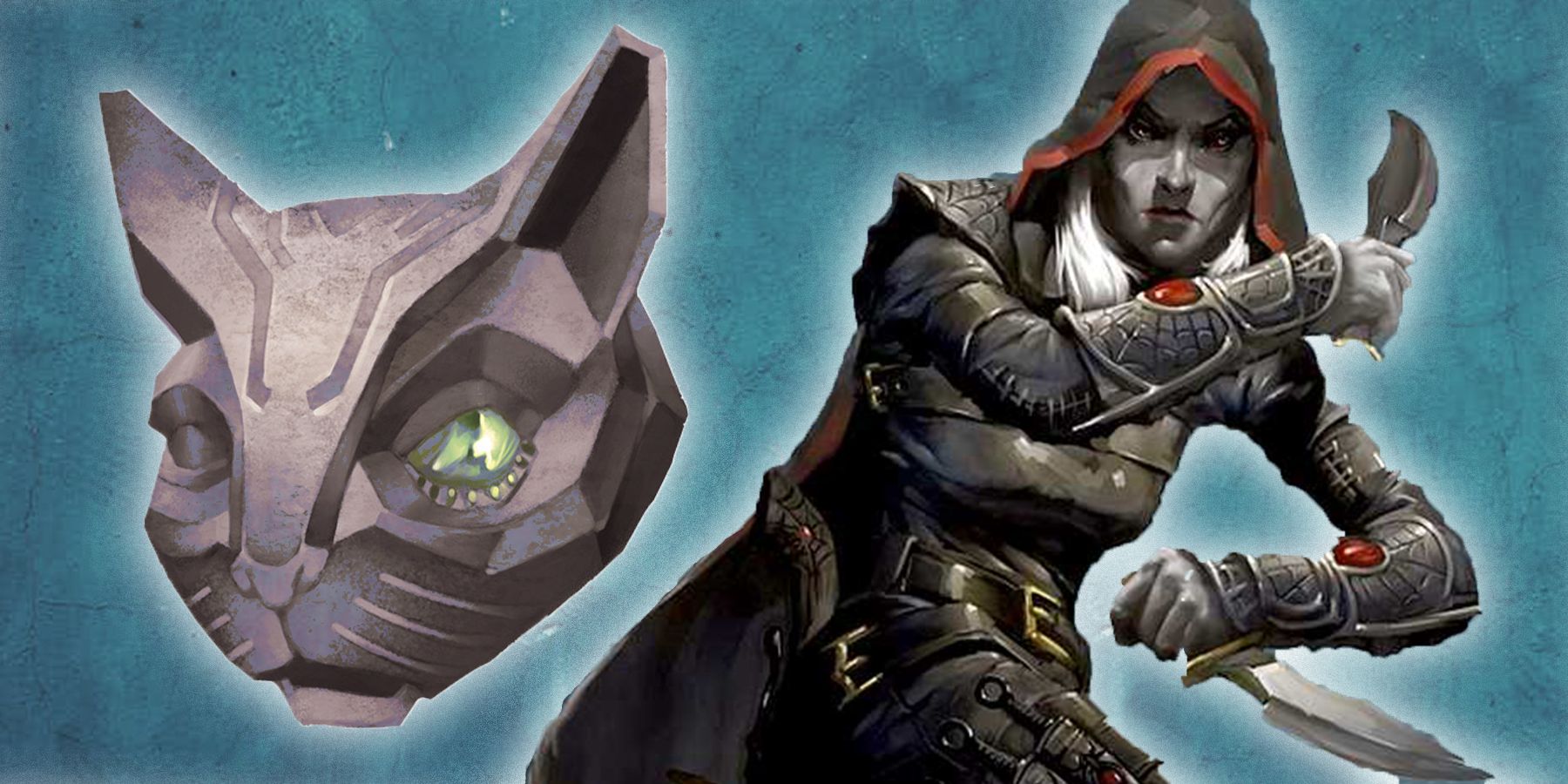
15 Best Magic Items For Rogues In D&D 5e, Ranked
Rogues in Dungeons & Dragons have a ton of skills and abilities, but there are plenty of magic items that can enhance those traits even more.Best Stats For A Rogue Build
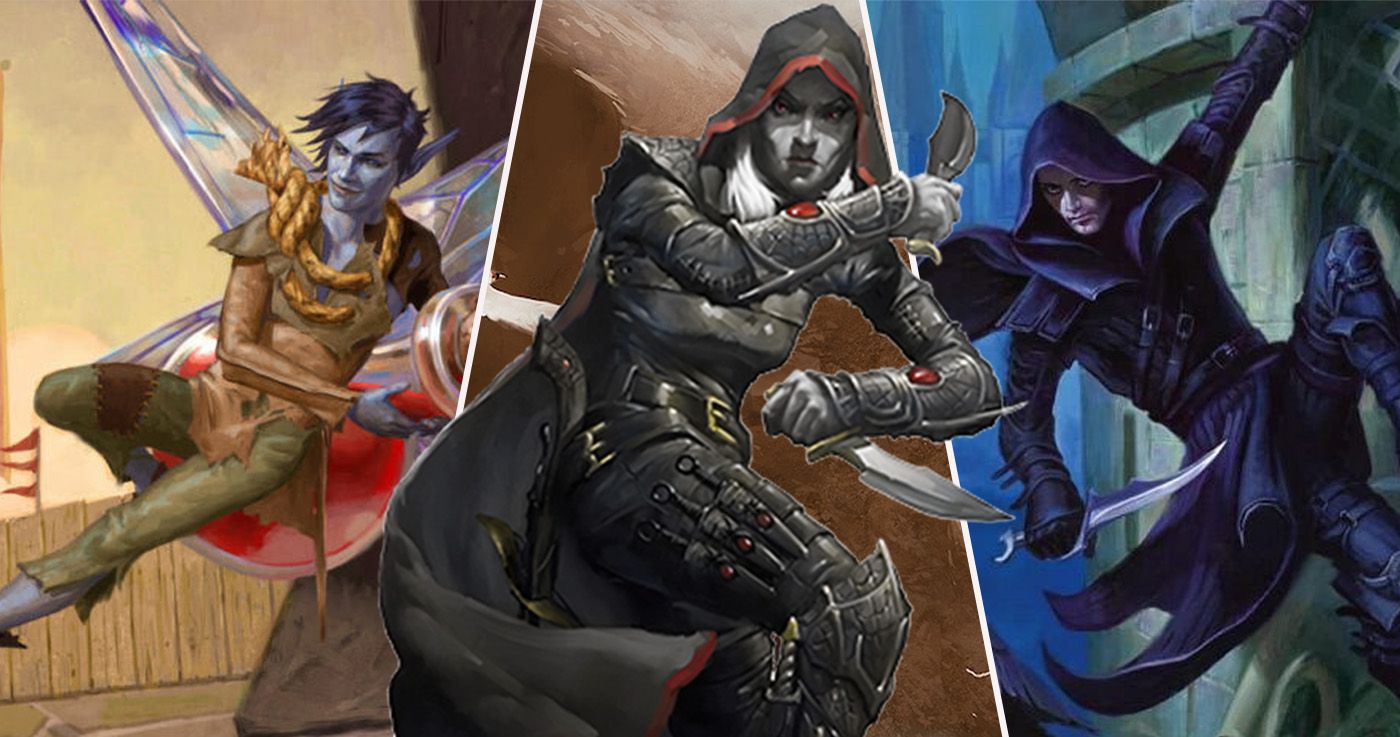
D&D: How To Build The Perfect Thief Rogue
The Thief rogue subclass isn't as flashy as the other rogue subclasses in D&D 5e, but it is still fun and powerful.Dexterity is essential for rogue builds in D&D 5e in and outside combat. It's their go-to attacking ability score, given Sneak Attack requires ranged or finesse weapons. It also bolsters their Armor Class, given their light armor proficiency. Furthermore, many iconic D&D 5e rogue skills like Stealth and Sleight of Hand require Dexterity. It should always be a rogue's top priority.
Constitution is also vital for rogues. Despite their more precise and sneaky approach, they are martial characters who often lack magic to heal them or keep them alive. Many rogues also fight in melee, at least occasionally. Rogues need high Constitution to compensate for their mediocre d8 hit die.
A rogue's other vital ability score depends on their approach. Expertise means a rogue can make one of D&D 5e's best face builds despite not using Charisma as a primary stat. Rogues who want to excel in social situations, such as those lacking a sorcerer or bard in the party, should keep Charisma high. Others will prefer Wisdom for its saving throw benefits and ties to some of D&D 5e's best skills like Perception. Only the Arcane Trickster rogue subclass needs Intelligence high.
Best Races for Rogues
Some Races Provide An Automatic Dexterity Bonus
|
Elf |
+2 Dex |
|
Halfling |
+2 Dex |
|
Satyr |
+1 Dex |
|
Feral Tiefling |
+2 Dex |
|
Bugbear |
+1 Dex |
|
Goblin |
+2 Dex |
|
Kenku |
+2 Dex |
|
Kobold |
+2 Dex |
|
Aarokocra |
+2 Dex |
|
Tabaxi |
+2 Dex |
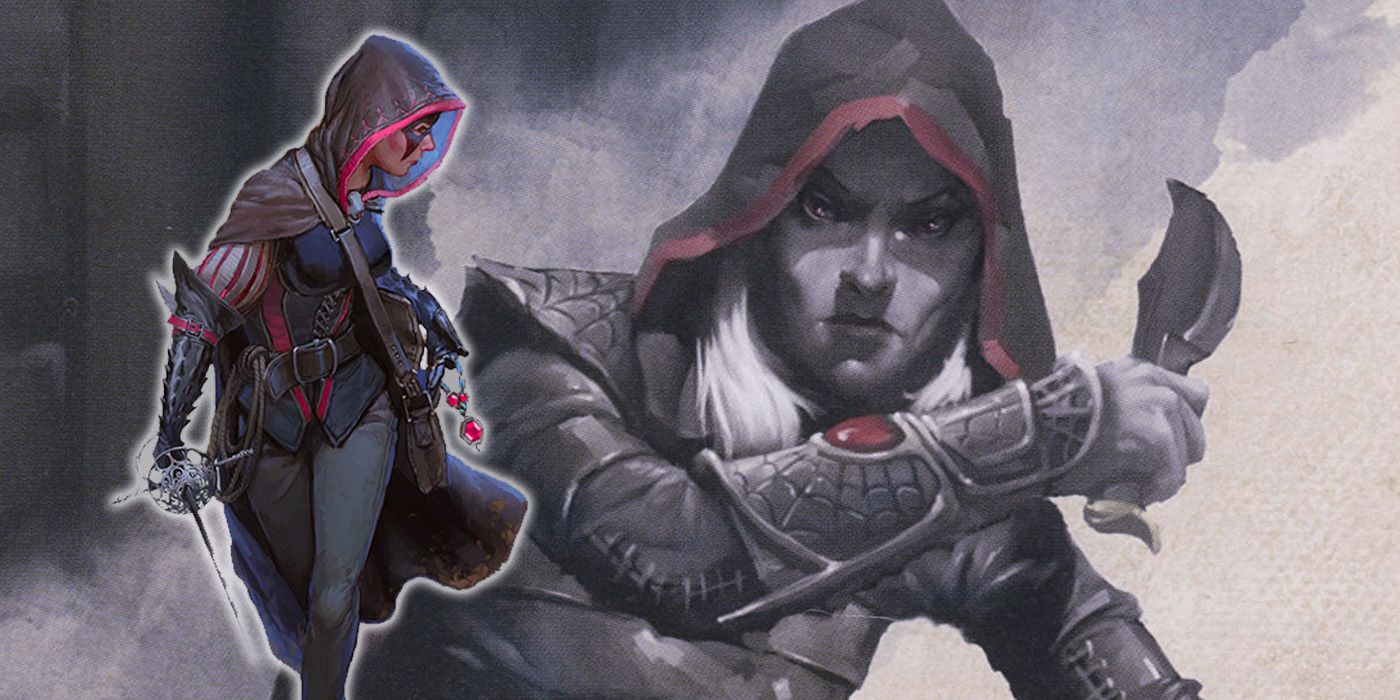
Dungeons & Dragons: How to Make Your Rogue Unique
Rogues are an exciting part of playing Dungeous & Dragons, but can often fall into stereotypes. Here are tips to ensure your next Rogue is unique.With the Tasha's Cauldron of Everything optional rules, rogues don't have to pick races with a Dexterity boost. Despite this significant change, variant human and custom lineage are as effective for rogues as they are for any other D&D 5e build. Even with a rogue's bonus feat, a free choice from first-level is always welcome and can synergize with almost any build.
Satyr is another solid D&D 5e race choice for any rogue. Its speed bonus synergizes well with Cunning Action's bonus dashing, potentially coming into play three times in one combat turn. It also adds two skill proficiencies to the rogue's already-vast list. Persuasion and Performance are both ideal for social-oriented rogues and let them take more situational skills as well. Magic Resistance helps seal the deal, adding to the rogue's defensive abilities and synergizing well with Evasion and Slippery Mind.
Fairy is a more esoteric race for a D&D 5e rogue with many benefits. The rogue is already one of the game's most mobile classes. At-will flight gives them a third dimension to hit-and-run in. Their limited armor proficiencies means there is no trade-off between protection and mobility. The fairy's spellcasting can benefit a rogue with any high mental ability score and give advantage for Sneak Attacks with Faerie Fire.
Rogues have very open background choices because of their ability to specialize in almost any skill. Nonetheless, classic D&D rogues focusing on Dexterity-based skills have an easy option in Urchin, which gives Sleight of Hand and Stealth. More socially-oriented rogues may prefer Faction Agent, which gives Insight and a free choice of Charisma skills to dominate conversations. Criminal splits the difference with Deception and Stealth to slide beneath the radar in any situation.
Best Background for a D&D 5e Rogue
When it comes to choosing a background, Dungeons & Dragons has plenty of options for rogues, and they not only help define a character's backstory and history, but they can also provide useful abilities that help them ply their nefarious trade. For example, the Charlatan background offers skill proficiencies in Deception and Sleight of Hand, and tool proficiencies with Disguise Kits and Forgery Kits. Since it's impossible to know when the party might need to forge some documents, this skill can really come in handy. Criminals are proficient in Stealth, Deception and Thieves' Tools, while those who choose the Pirate background have proficiency with Athletics, Perception and Navigator's Tools, as well as the Bad Reputation feature. Characters with Bad Reputation tend to get away with more criminal activities, which is always useful for a rogue. Paired with the Swashbuckler Archetype, the Pirate background has great potential for creating a truly intimidating figure whose reputation precedes them wherever they go.
The Best Roguish Archetypes
Every Available 5e Roguish Archetype
- Arcane Trickster
- Assassin
- Inquisitive
- Mastermind
- Scout
- Soulknife
- Swashbuckler
- Thief
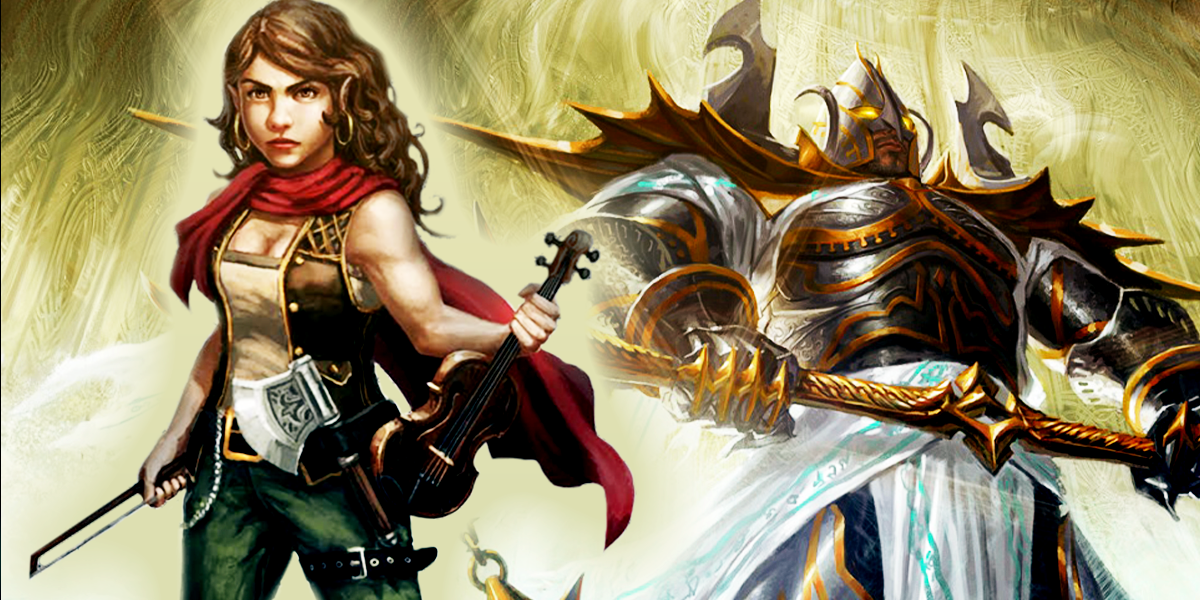
10 Most Broken Character Builds For D&D 5e (& 10 Underwhelming Builds)
Dungeons & Dragons gives players a ton of flexibility when creating their characters, but some builds and combos are far more effective than others.Every D&D 5e rogue subclass adds valuable new options to the class toolkit both in and outside combat. However, few add more value than the Arcane Trickster Rougish Archetype. The rogue already has some of D&D 5e's most flexible options. Spellcasting adds even more. Illusion or Enchantment spells are invaluable for stealth, social interaction, and more. It even adds to brute combat ability with cantrips like Booming Blade. The only downside is that it emphasizes Intelligence over other mental stats, potentially limiting other skills.
Soulknife is a rogue subclass in D&D 5e from Tasha's Guide to Everything that makes a rogue better at almost anything they want to do. It gets a flexible pool of Psionic Power dice to add to unsuccessful ability scores and, eventually, attack rolls. These aren't spent if the roll fails, meaning there's minimal cost. It provides more combat power with Soul Blades and many utility options like teleportation, communication, and more.
Swashbuckler is a more mundane option that is still one of the best rogue subclasses in D&D 5e. It's a more martial and social rogue, with less emphasis on sneaking and underhand tactics. Swashbucklers get Sneak Attack more consistently than other rogues thanks to Rakish Audacity. They're also primed for hit-and-run attacks without having to use Cunning Action. Swashbucklers are mobile, charming warriors who get all the benefits of a rogue's base abilities for a very different take on the class.
Best Feats for Rogues
|
Rogue Level |
Recommended Feat |
|---|---|
|
1 (Human/Custom Lineage Only) |
Fighting Initiate/Magic Initiate |
|
4 |
Ability Score Increase: Dexterity |
|
8 |
Ability Score Increase: Dexterity |
|
10 |
Ability Score Increase: Charisma/Intelligence/Wisdom |
|
12 |
Skill Expert |
|
16 |
Mobile/Piercer |
|
19 |
Ability Score Increase: Constitution |

15 Best 5e Feats For D&D Rogues, Ranked
Every player flavors a Rogue differently, and many fantastic feats in D&D allow players to craft a unique Rogue for a number of purposesRogues get an additional Ability Score Improvement over other D&D 5e classes, giving them even more opportunities for feats. Magic Initiate is a must-take for any melee rogue who doesn't get cantrips from their subclass or race. Booming Blade or Green-Flame Blade are effectively free damage on top of a rogue's Sneak Attack with additional effects besides. Other D&D 5e cantrips like Minor Illusion and many first-level wizard spells are welcome in a rogue's toolkit.
Fighting Initiate is invaluable for ranged rogues purely for the Archery Fighting Style in D&D 5e. Rogues need to land their Sneak Attack as often as possible to stay competitive with their damage. An additional +2 to hit provides a significant damage increase throughout the campaign.
Skill Expert doubles down on a rogue's best out-of-combat feature. Rogues already get a vast amount of Expertise, but one more helps sell them as the go-to character for skills. Another proficiency expands their versatility. Reliable Talent ensures they'll be effective with any skill, even if their ability scores don't synergize with it.
Mobile helps melee D&D 5e rogues with a hit-and-run playstyle. With Mobile, a rogue doesn't need to use their Cunning Action to Disengage from melee foes. Instead, they can use Dash to get further away and out of range of retaliation.
All rogues can benefit from Piercer. Most finesse and ranged weapons deal piercing damage. With how many Sneak Attack dice a rogue rolls, they're almost guaranteed to get a one or a two they can reroll for an appreciable damage increase. It's not an overwhelming bonus, but it will add up throughout a campaign to bolster the rogue's damage.
Multiclassing A 5e Rogue
Rogues are entirely viable as a singleclassed build. Nonetheless, there are some rogue multiclass options in D&D 5e that can widen their toolkit even further. Rogues multiclass well with fighters in D&D 5e. Two fighter levels gives the Archery Fighting Style for a significant accuracy boost. Even though Sneak Attack can only happen once per turn, canny characters can strike and then Action Surge to ready another attack. This inflicts Sneak Attack twice in one round for devastating damage.
Warlock is a more esoteric rogue multiclass build in D&D 5e that favors social rogues. The ability to attack and charm other creatures with Charisma allows the rogue to advance both sides of their build with one ability score. Medium armor and shields help prevent this from affecting Armor Class. Spellcasting and Eldritch Invocations also have plenty to offer a D&D 5e rogue.

